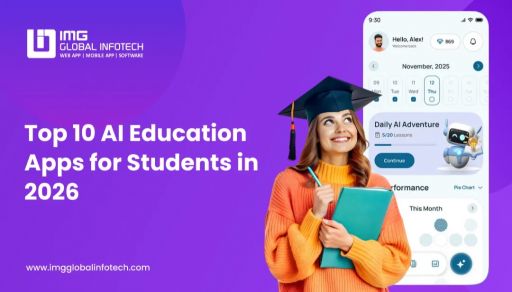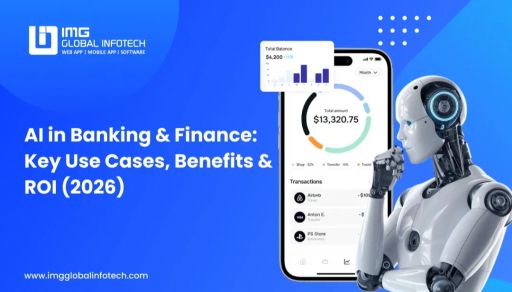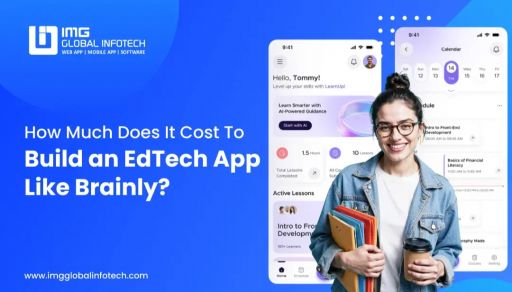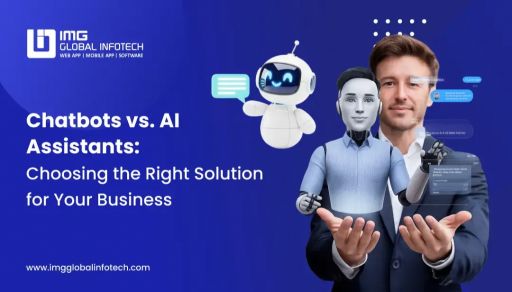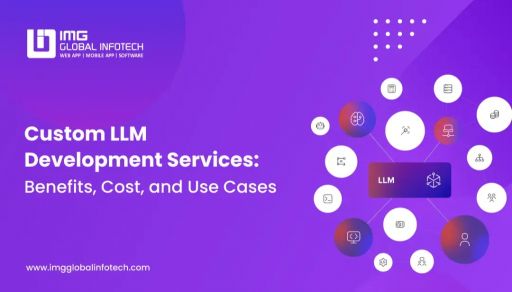AI In Nutrition: Top Use Cases & Benefits
Dipti Singhal
Sep 08, 2025
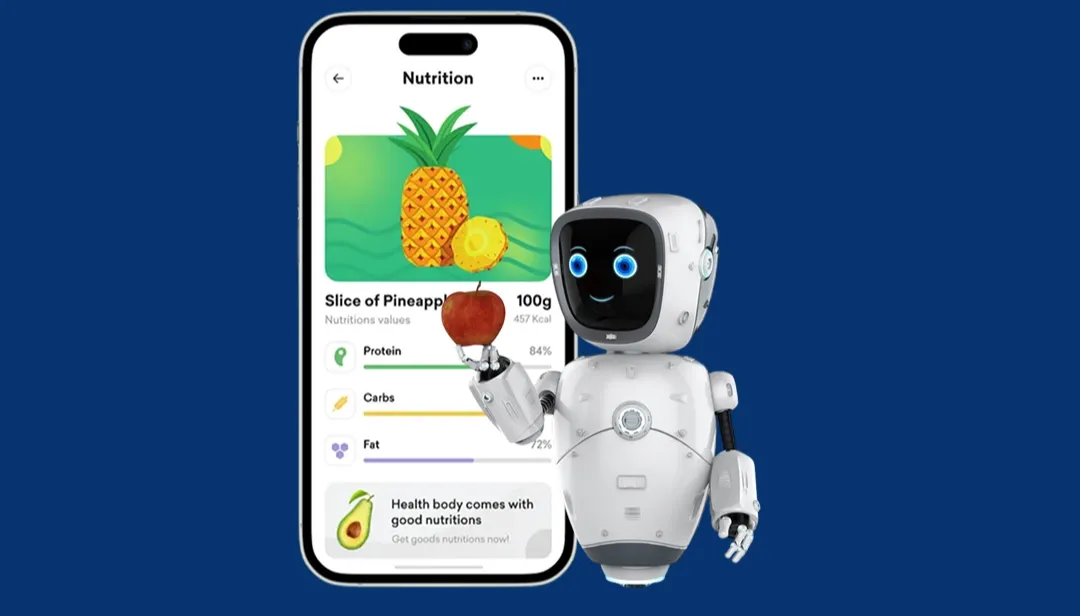
Artificial Intelligence (AI) is changing how we think about food, health and wellness. Balancing nutrition has become challenging in today's hectic life. Thankfully, AI technology provides better, smarter, and customized solutions. We are seeing not only customized meal plans but AI technology is also being used to track nutrition, evaluate food choices and even predict health risks and other interventions. It is redefining how we manage our diet or lifestyle habits in an efficient, easy to use and progressive way. AI and other technologies simplify our ability to track nutrition, but also help us make healthier, smarter and more sustainable choices. Various healthcare providers and food places are already implementing AI technology for more sophisticated dietary insights and solutions. This blog will take a look at the most used cases of how AI in nutrition can improve nutrition and health by changing the way we live.
What is AI in Nutrition?
When it comes to AI meaning in nutrition you must know the real meaning of AI in nutrition is using various artificial intelligence technologies to address, analyze, and personalize nutrition, lifestyle, and health outcomes. AI technology can analyze and process vast amounts of data from various dietary patterns, food intake and biomarkers, and offer dietary and nutrition recommendations, track nutrient deficiencies, and more improved food alternatives. AI technology in nutrition can help practitioners manage the diet, lifestyle or health of individuals with specified diet life conditions like Diabetes, obesity, heart disease, etc. Overall, aid in personalized nutrition will assist in promoting smarter and better eating choices for long-term wellness.
Top Applications of AI in Nutrition
Artificial Intelligence (AI) is revolutionizing the area of nutrition including nutrition and meal planning to be smarter, more personalized and more accessible. By leveraging large datasets, AI can empower individuals and health providers to make informed dietary decisions to avoid illness and maintain health overall. Here is a list of the ten best applications of AI in healthcare.
1. Personalized Nutrition Plans
AI is an extremely valuable tool in developing personalized meal plans. While normal diets prescribe a usual approach for meal plans, ai stands for in nutrition take an individual's age, weight, past medical history, activity levels and even genetic analytics into account when creating tailored diets allowing for nutrient-dense meals relate to the person's health goal of weight loss, sport performance, or disease prevention.
2. Food Recognition & Nutrient Analysis
AI in nutrition and dietetics can also recognize food by following an image and calculate the nutrient value of every food item. For example, a user can photograph their meal using an app, and the details pertaining to calories, macronutrients and carbohydrates or micronutrients will be instantly available to them. This allows for food and nutrition tracking to be as easy as tapping a couple of buttons and far more accurate than documenting more manually.
3. Predictive Health Risk
AI models can also predict potential health risks associated with diet or food consumption, such as diabetes, obesity, or heart disease. By comparing patterns in food consumption to biomarker levels; AI systems can alert users to concerning food consumption patterns and suggest using a different or preventive diet. This proactive approach allows individuals to intervene before health issues arise.
4. Virtual Nutrition Coaches
AI-powered virtual assistants can act like personal artificial intelligence nutritionists to give real-time support and feedback to individuals. These chatbots and applications provide continuous support, suggesting potential food substitutes as "snack swaps," reminders to drink water, recommendations for portion sizes, etc. By providing consistent support, these programs help users make daily commitments to their health, developing healthy habits over time.
5. Smart Recipe Recommendations
AI can recommend recipes based on any dietary needs, goals, and available ingredients. For example, if someone has a protein gap in their diets, the application can suggest high protein recipes. The app considers allergies, vegan requirements, low sodium, etc., so users can enjoy food and healthy eating.
6. Wearable Device Integration
When you merge ai and nutrition with wearable devices or smart watches, you have an overall perspective of health. This offers connections between movement, sleep quality, and diet behaviours so that you can manage your eating behaviours to achieve the best outcome for your health. It melds the elements of nutrition and lifestyle into an overall health management plan.
7. Meal Plans Directly Related to Medical Needs
AI's integration into the healthcare field will provide value to the world of dietary management. Patients with diabetes, hypertension, kidney disease, etc., will need to follow diet plans from nutritionists that include dietary restrictions and/or identified medical needs. In the future, we can incorporate other AI-driven tools to provide healthcare professionals with a useful baseline for how patients are doing.
8. Grocery Shopping Assistance
AI technology supports healthier making in food shopping. Simply scan product bar codes or read ingredient lists from a product and the AI service utilizes that data to suggest healthier alternatives, help keep to budgets, deter impulse buying and, in some cases, even suggest shopping lists based on planned meals for the week.
9. Suggestions for a Sustainable and Eco-Friendly Diet
AI can help promote better choices for the things we eat that are also more environmentally friendly, by providing recommendations on plant-based substitutes, waste reduction, and access to analyze the carbon footprint on prepared meals. These also use consumption data accumulated over time, which is beneficial to improving healthier lifestyles while contributing to overall sustainability in agriculture and food systems.
10. Research and Development of New Food Products
The field of food is benefitting from AI for nutrition, as it helps researchers identify new ingredients for food products, identify ingredients to fortify foods, and analyze consumer preferences through sensory studies. This process helps the food industry move quickly through product development to develop healthier, functional food products that meet the rapidly changing expectations for nutritional health.
Benefits of AI to Help with Nutrition/Diet Management
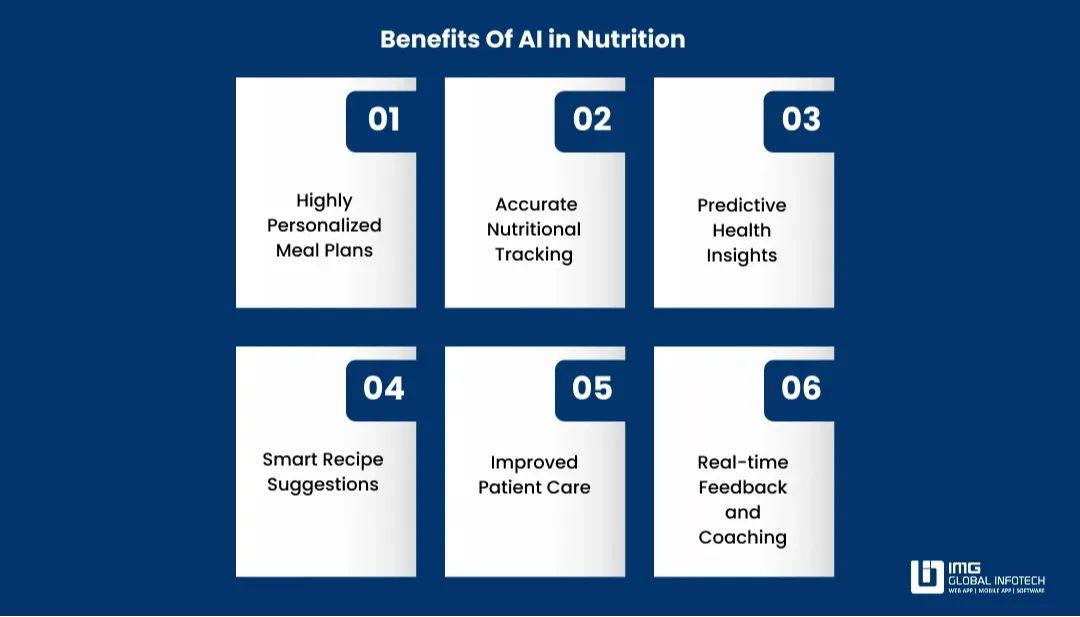
Artificial Intelligence, (AI) has changed the way we address nutrition and diet management. AI uses data, predictive analytics and machine learning to provide highly tailored solutions that can go beyond diet planning into adaptable diets. Here are eight chances in benefit methodology for AI and nutrition:
1. Highly Personalized Meal Plans
AI can provide personalized diet plans by using health data from an individual based on their age, weight, activity level, health history to noun the dataset of health challenges and diet complications for many people, to be able to provide info back to participants on their most unique set of health condition data. Unlike generic diets with standard recommendations, these custom recommendations help people reach specific goals, such as weight loss, muscle gain, or manage chronic conditions.
2. Accurate Nutritional Tracking
AI app development scan barcodes, can identify food through images and can quickly calculate their nutrient content. Barcode scanning and image identification take away tedious manual tracking and human error, and you can see exactly your calorie intake, macro balance, and vitamin intake.
3. Predictive Health Insights
AI can detect trends in dietary patterns and tie them back to health information to provide predictive health insights about possible health risks (i.e. obesity, diabetes, heart disease). Having this information allows people to change their eating patterns prior to the onset of health problems, enabling true preventive healthcare.
4. Smart Recipe Suggestions
AI may help suggest meal recipes based on ingredient inventories, dietary preference, or nutritional goals. For instance: if a person is looking to increase protein or needs to reduce sugar, it can suggest meal recipe alternatives that meet those nutritional goals. In addition, it makes healthy eating easier and enjoyable by allowing people to select appropriate meals from a list.
5. Improved Patient Care
AI tools help healthcare providers to develop evidence-based diet strategies for patients beyond prescription medications alone. It also mitigates risk when helping a patient manage a health issue or crisis (i.e., hypertension, gastrointestinal challenges, food allergies, etc.) by creating a safe diet for patients that is also effective and personalized.
6. Real-time Feedback and Coaching
AI provides real-time feedback from a virtual nutrition coach with reminders for goal fulfillment and motivational suggestions. Whether it is suggesting healthier snacking options or sending reminders to drink more water, AI provides a constant reminder and a new way to achieve individual wellness goals.
How to Build A Smart Diet Planning App?
Designing a smart diet planning app needed intricate combinations of technology, user experience, and dependable nutritional underlying data. Building a smart diet or meal planning app with a company focusing on app development, AI, and machine learning for food nutrition and diet apps, businesses can be certain their app will be reliable, fun, and scalable. There are five main steps to take:
1. Identify the Purpose and Function of the App
You will need to learn about your audience, and what's important to them, and determine how you will engage them; if you desire personalized meal plans, calorie counting or monitoring, ai in diet enabled food recognition, recipe recommendations, integrating predictions from applications diet through wearables, or a nutrition coach in a chat platform. A Diet and nutrition app development company that has experience with the activities mentioned, can then help you refine a list of features into a single, coherent project roadmap.
2. Determine the Best Technology Stack
A smart diet planning app will need sufficient backend platforms, applications and AI / machine learning functions to collect, record, analyze, and derive data. Developers need to establish the foundation with frameworks, databases, api's, and other necessary platforms that will be visually integrated with features like bar-code scanning, image recognition and predicted statistics that are intuitive.
3. Data and Personalisation with AI
The core or virtue of success of diet planning apps and other similar applications is benefited by offering a personalised experience. AI development companies analyse user data, which could include age, weight, lifestyle, and health conditions with AI, providing a personalized diet or meal reader. This is further enhanced with the concepts of AI, machine learning (ML) to better the suggestions users receive with time, keeping users always engaged.
4. Design an Intuitive and Engaging UI/UX
User experience is critical for the retention of users. A good development company guarantees a clean and easy-to-navigate user interface using appealing graphics too. At a minimum, a good app will provide users with a progress dashboard, reminders, and a gamification component to keep users engaged and on track with their diet journey.
5. Testing, Launching, and Maintaining the App
Testing is important to ensure the app has no bugs and works on all devices. Maintenance and updates are important too, and working on features for existing users always, means we have a successful app long-term. A good development company will fix bugs, help maintain the app, and integrate new technologies to stay competitive.
The Future of AI in Nutrition
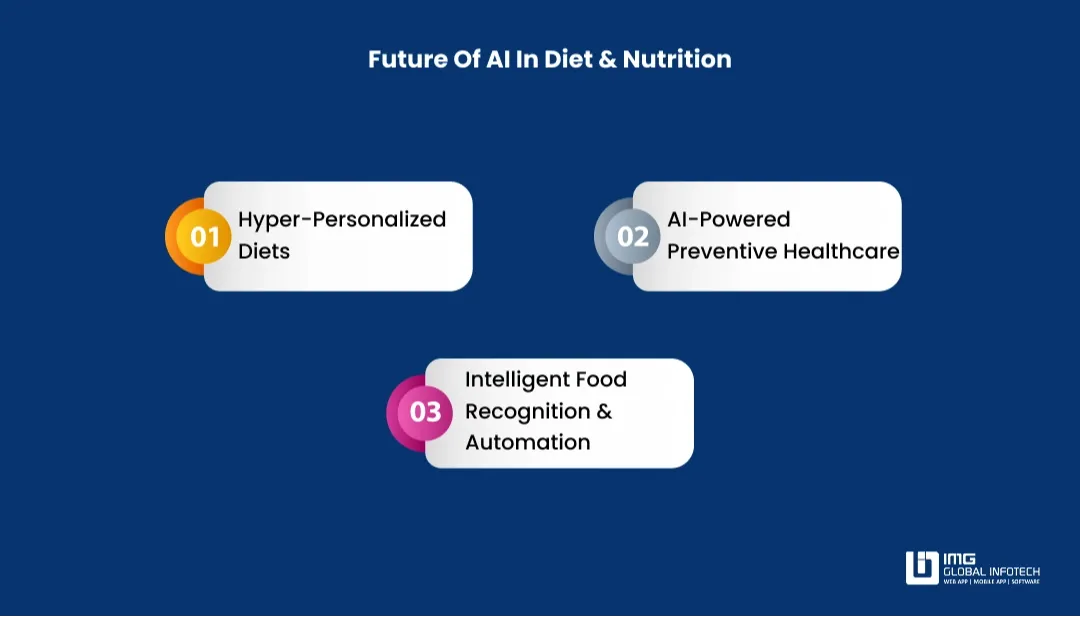
Artificial Intelligence promises to revolutionize the future of nutrition and health. Five ways AI will transform the future of nutrition are:
Hyper-Personalized Diets
Future nutrition apps based on AI will go beyond calorie tracking. At this point, genetic information, microbiome information, and real time biomarkers, will allow users to develop hyper-personalized diet plans. This will allow for precision nutrition based on each individual's biology, resulting in better outcomes managing weight, increasing energy, and preventing lifestyle diseases.
AI-Powered Preventive Healthcare
Nutrition will focus on prevention, rather than treatment. Diet ai will determine nutrient deficiencies, food intolerances, and disease risks that are not yet visible.An early alert system will enable individuals to make diet correction, thus decreasing the chronic disease burden worldwide; such as diabetes and heart disease.
Intelligent Food Recognition & Automation
Intelligent computer vision and AI-based scanners will identify foods instantly, record nutrient value, and won't require user input. They will also record portion sizes automatically, and all be linked to our smart kitchens, making eating healthy even easier and more convenient. It is one of the technologies that increase AI app development cost so ensure to connect with leading AI app developers.
Conclusion
The influence of AI in nutrition is changing the way we look at our personal lifestyle, tracking dietary consumption, and changing the future of healthy eating for long-standing good health. The ability to use AI in diet from personalized meal planning to predictive health, the benefits of AI in nutrition has the transitional capacity to improve personal health practices as well as healthcare as a profession. As data and technology evolve, the ability to use AI in nutrition will extend the use of interventions related to diet management to a much smarter means of achieving responsible diet management and health effects. IMG Global Infotech leads the way in diet planning app development to help companies realize the technological and health impacts achieved through smart, innovative AI-driven outcomes.
Dipti Singhal is a skilled Content Writing Specialist at IMG Global Infotech, with strong expertise in creating engaging, SEO-optimized content for various industries. She focuses on blending storytelling with effective keyword strategies to help businesses connect with their audience and improve their online visibility. Passionate about delivering high-quality content that drives real results, Dipti plays an essential role in strengthening the company’s digital presence.



